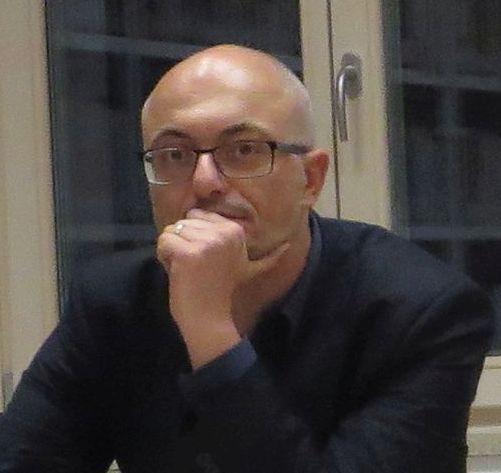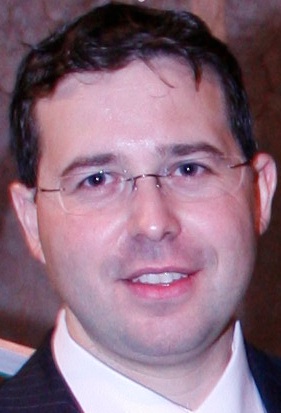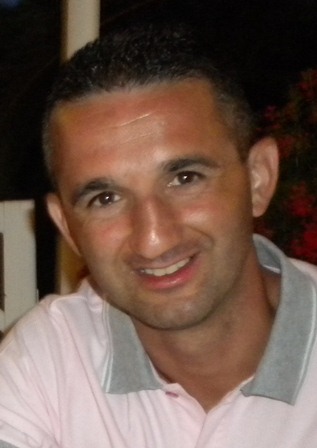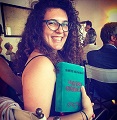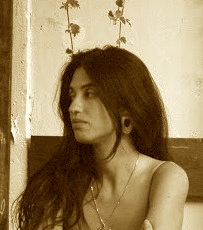Studiare
In questa sezione è possibile reperire le informazioni riguardanti l'organizzazione pratica del corso, lo svolgimento delle attività didattiche, le opportunità formative e i contatti utili durante tutto il percorso di studi, fino al conseguimento del titolo finale.
Calendario accademico
Il calendario accademico riporta le scadenze, gli adempimenti e i periodi rilevanti per la componente studentesca, personale docente e personale dell'Università. Sono inoltre indicate le festività e le chiusure ufficiali dell'Ateneo.
L’anno accademico inizia il 1° ottobre e termina il 30 settembre dell'anno successivo.
Calendario didattico
Il calendario didattico indica i periodi di svolgimento delle attività formative, di sessioni d'esami, di laurea e di chiusura per le festività.
| Periodo | Dal | Al |
|---|---|---|
| Sem. 1A | 24-set-2018 | 10-nov-2018 |
| Sem. 1B | 19-nov-2018 | 12-gen-2019 |
| Sem. 2A | 18-feb-2019 | 30-mar-2019 |
| Sem. 2B | 8-apr-2019 | 1-giu-2019 |
| Sessione | Dal | Al |
|---|---|---|
| Sessione d'esame invernale | 14-gen-2019 | 16-feb-2019 |
| Sessione d'esame estiva (gli esami sono sospesi durante la sessione di laurea) | 3-giu-2019 | 27-lug-2019 |
| Sessione d'esame autunnale | 26-ago-2019 | 21-set-2019 |
| Sessione | Dal | Al |
|---|---|---|
| Sessione di laurea estiva | 8-lug-2019 | 13-lug-2019 |
| Sessione di laurea autunnale | 4-nov-2019 | 9-nov-2019 |
| Sessione di laurea invernale | 30-mar-2020 | 4-apr-2020 |
| Periodo | Dal | Al |
|---|---|---|
| Festa di Ognissanti | 1-nov-2018 | 1-nov-2018 |
| Sospensione dell'attività didattica | 2-nov-2018 | 3-nov-2018 |
| Festa dell’Immacolata | 8-dic-2018 | 8-dic-2018 |
| Vacanze di Natale | 24-dic-2018 | 5-gen-2019 |
| Vacanze di Pasqua | 19-apr-2019 | 23-apr-2019 |
| Sospensione attività didattica | 24-apr-2019 | 27-apr-2019 |
| Festa della liberazione | 25-apr-2019 | 25-apr-2019 |
| Festa del lavoro | 1-mag-2019 | 1-mag-2019 |
| Festa del Santo Patrono | 21-mag-2019 | 21-mag-2019 |
| Festa della Repubblica | 2-giu-2019 | 2-giu-2019 |
| Vacanze Estive | 12-ago-2019 | 17-ago-2019 |
Calendario esami
Gli appelli d'esame sono gestiti dalla Unità Operativa Segreteria Corsi di Studio Culture e Civiltà.
Per consultazione e iscrizione agli appelli d'esame visita il sistema ESSE3.
Per problemi inerenti allo smarrimento della password di accesso ai servizi on-line si prega di rivolgersi al supporto informatico della Scuola o al servizio recupero credenziali
Per dubbi o domande leggi le risposte alle domande più frequenti F.A.Q. Iscrizione Esami
Docenti
 giovanni.bernardini@univr.it
giovanni.bernardini@univr.it
 paolamaria.caleffi@univr.it
paolamaria.caleffi@univr.it
 ariel.caputo@univr.it
ariel.caputo@univr.it
 andrea.capuzzo@univr.it
andrea.capuzzo@univr.it
 marco.carradore@univr.it
marco.carradore@univr.it
 rossana.cotroneo@univr.it
rossana.cotroneo@univr.it
 paolodalben@tin.it
paolodalben@tin.it
 sara.fontana@univr.it
sara.fontana@univr.it
 maxclaudiogallo@gmail.com
maxclaudiogallo@gmail.com
 veronica.gobbato@univr.it
veronica.gobbato@univr.it
 diegogabriel.krivochen@univr.it
diegogabriel.krivochen@univr.it
 marco.menato@univr.it
marco.menato@univr.it
 giulia.pedrucci@univr.it
giulia.pedrucci@univr.it
 nicola.righetti@univie.ac.at
nicola.righetti@univie.ac.at
 alberto.scandola@univr.it
alberto.scandola@univr.it
Piano Didattico
Il piano didattico è l'elenco degli insegnamenti e delle altre attività formative che devono essere sostenute nel corso della propria carriera universitaria.
Selezionare il piano didattico in base all'anno accademico di iscrizione.
1° Anno
| Insegnamenti | Crediti | TAF | SSD |
|---|
2° Anno Attivato nell'A.A. 2019/2020
| Insegnamenti | Crediti | TAF | SSD |
|---|
3° Anno Attivato nell'A.A. 2020/2021
| Insegnamenti | Crediti | TAF | SSD |
|---|
| Insegnamenti | Crediti | TAF | SSD |
|---|
| Insegnamenti | Crediti | TAF | SSD |
|---|
| Insegnamenti | Crediti | TAF | SSD |
|---|
| Insegnamenti | Crediti | TAF | SSD |
|---|
Legenda | Tipo Attività Formativa (TAF)
TAF (Tipologia Attività Formativa) Tutti gli insegnamenti e le attività sono classificate in diversi tipi di attività formativa, indicati da una lettera.
Letteratura inglese (i) (2020/2021)
Codice insegnamento
4S01196
Docente
Coordinatore
Crediti
6
Lingua di erogazione
Italiano
Settore Scientifico Disciplinare (SSD)
L-LIN/10 - LETTERATURA INGLESE
Periodo
CuCi IIB dal 14-apr-2021 al 29-mag-2021.
Obiettivi formativi
Il corso intende introdurre gli studenti alla Letteratura inglese fra Ottocento e Novecento nel quadro della letteratura europea, con particolare riferimento ad alcuni testi canonici, e parallelamente fornire strumenti appropriati per l’analisi critica dei testi e dei generi letterari. Obiettivo del corso è di sviluppare la capacità di comprendere e analizzare testi narrativi di epoca moderna in lingua inglese e in traduzione italiana, avvicinando gli studenti a un confronto tra generi e stili nel quadro del loro contesto storico-culturale e con l’ausilio di approcci metodologici mirati allo sviluppo di adeguate competenze analitiche e argomentative. Al completamento del corso, gli studenti saranno in grado di rielaborare le conoscenze acquisite in modo critico, comprendere testi complessi in lingua inglese e tradurli in italiano, oltre a esporre i risultati raggiunti in una appropriata forma linguistica e argomentativa.
Programma
Variazioni sull’ebreo: Marlowe, Shakespeare, Wesker e Marowitz
Partendo dall’approfondimento dei concetti di adattamento e appropriazione, il corso si propone di indagare due testi tardo-novecenteschi che si ispirano a Il mercante di Venezia di William Shakespeare e The Jew of Malta di Christopher Marlowe. All’esplorazione del ruolo e della caratterizzazione dell’ebreo nei due drammi rinascimentali seguirà quella della sua presenza nelle riscritture di Arnold Wesker e Charles Marowitz, entrambe risalenti alla metà degli anni Settanta, intese come risposte non soltanto alla rappresentazione tardo-cinquecentesca di Shylock e Barabas, ma anche alla lunga storia della loro ricezione.
Avvertenze
Il corso sarà tenuto in italiano (lezioni frontali), con lettura dei testi in inglese.
Il programma si articola in tre parti, rubricate sotto la voce TESTI DI RIFERIMENTO:
a. Testi primari
b. Letture critiche
c. Letture critiche aggiuntive per studenti non frequentanti
TESTI DI RIFERIMENTO
a. Testi primari
- Christopher Marlowe, The Jew of Malta, in Id., The Complete Plays, ed. by Frank Romany and Robert Lindsey (Penguin Books, 2003), pp. 241-340 [tr. it. con testo inglese a fronte L’ebreo di Malta, Marsilio, 2007).
- William Shakespeare, The Merchant of Venice, ed. by Charles Edelman (Cambridge University Press, 2002) [tr. it. con testo inglese a fronte Il mercante di Venezia, Marsilio, 2016].
- Arnold Wesker, Shylock, in Id., Shylock and Other Plays (Penguin, 1990), vol. 4, pp. 171-261 [tr. it. con testo inglese a fronte Shylock, Guerini 1989].
- Charles Marowitz, Variations on The Merchant of Venice, in Id., The Marowitz Shakespeare (Marion Boyars, 2009), pp. 226-283.
b. Letture critiche
- Julie Sanders, Adaptation and Appropriation (Routledge, 2006).
- Dario Calimani, “L’ebreo di Malta. I significati della fine”, Quaderni Veneti, 3, 2014, pp. (scaricabile all’indirizzo: https://edizionicafoscari.unive.it/en/edizioni4/riviste/quaderni-veneti/2014/1/lebreo-di-malta/).
- Michele Stanco, “Il contratto ebraico-cristiano: l’usura, la penale, il processo in The Merchant of Venice”, in The Merchant of Venice. Dal testo alla scena, a c. di Mariangela Tempera (CLUEB 1994), pp. 87-116.
- Efraim Sicher, “The Jewing of Shylock: Wesker’s The Merchant”, Modern Language Studies, Vol. 21, No. 2 (Spring 1991), pp. 57-69 (scaricabile da Jstor – v. istruzioni per l’accesso su MOODLE).
- Michael Scott, “Demythologising Shylock: Arnold Wesker, The Merchant; Charles Marowitz, Variations on The Merchant of Venice”, in Id., Shakespeare and the Modern Dramatist (Palgrave Macmillan, 1989), pp. 44-59.
c. Letture critiche aggiuntive per studenti non frequentanti
- Arata Ide, “The Jew of Malta and the Diabolic Power of Theatrics in the 1580s”, Studies in English Literature, 1500-1900, 46, (2), 2006, pp. 257-279 (scaricabile da Jstor – v. istruzioni per l’accesso su MOODLE).
- Anna Cavallone Anzi, Riscritture nel teatro inglese contemporaneo: A. Wesker, D. Pownall, C. Hampton (Unicopli, 1989), pp. 11-35.
Ulteriori precisazioni bibliografiche saranno fornite all’inizio delle lezioni.
MATERIALE DIDATTICO
Eventuale materiale di sostegno alla didattica (schede di approfondimento, testi, immagini, ecc.) utilizzato in classe sarà scaricabile dalla piattaforma MOODLE entro la fine delle lezioni. Questo materiale aggiuntivo non sostituisce, ma affianca la lettura integrale e obbligatoria dei testi primari e critici elencati alla voce Testi di riferimento.
Modalità d'esame
Tipologia: colloquio. Non sono previste prove intermedie.
L’esame si svolgerà oralmente, in italiano, e consisterà in un colloquio volto a verificare la conoscenza degli argomenti in programma (testi e autori) trattati durante il corso. Agli studenti verrà richiesto di commentare criticamente i testi primari analizzati, contestualizzandoli all’interno del periodo storico-letterario di riferimento. Saranno quindi valutate: 1) la conoscenza e la comprensione di testi in inglese, 2) lo sviluppo di capacità di sintesi e di analisi in relazione alle principali tematiche e problematiche storico-culturali, testuali e critiche studiate, 3) la proprietà linguistico-argomentativa nell’esposizione.
Tipologia di Attività formativa D e F
| anni | Insegnamenti | TAF | Docente |
|---|---|---|---|
| 1° 2° 3° | Felicita' pubblica. genealogie, percorsi, prospettive | F |
Olivia Guaraldo
(Coordinatore)
|
| 1° 2° 3° | Laboratorio di critica teatrale | F |
Simona Brunetti
(Coordinatore)
|
| 1° 2° 3° | Univero’ 2018 | F |
Tiziana Franco
(Coordinatore)
|
| anni | Insegnamenti | TAF | Docente |
|---|---|---|---|
| 1° 2° 3° | Conferenza su " crimine, giustizia e media" | F |
Maurizio Corte
(Coordinatore)
|
| 1° 2° 3° | Felicita' pubblica. genealogie, percorsi, prospettive | F |
Olivia Guaraldo
(Coordinatore)
|
| 1° 2° 3° | Laboratorio di critica teatrale | F |
Simona Brunetti
(Coordinatore)
|
| 1° 2° 3° | Teatro a rotelle - conferenze | F |
Simona Brunetti
(Coordinatore)
|
| anni | Insegnamenti | TAF | Docente |
|---|---|---|---|
| 1° 2° 3° | Felicita' pubblica. genealogie, percorsi, prospettive | F |
Olivia Guaraldo
(Coordinatore)
|
| 1° 2° 3° | Laboratorio di elaborazione dati | F |
Maurizio Boscaini
(Coordinatore)
|
| 1° 2° 3° | Psicologia delle risorse umane: il colloquio e l'intervista professionale | F |
Riccardo Sartori
(Coordinatore)
|
| 1° 2° 3° | Psicologia e comunicazione: processi di innovazione e creativita' nelle organizzazioni | F |
Riccardo Sartori
(Coordinatore)
|
| 1° 2° 3° | Schedare l'effimero teatrale | F |
Simona Brunetti
(Coordinatore)
|
| 1° 2° 3° | Teatro a rotelle | F |
Simona Brunetti
(Coordinatore)
|
Prospettive
Avvisi degli insegnamenti e del corso di studio
Per la comunità studentesca
Se sei già iscritta/o a un corso di studio, puoi consultare tutti gli avvisi relativi al tuo corso di studi nella tua area riservata MyUnivr.
In questo portale potrai visualizzare informazioni, risorse e servizi utili che riguardano la tua carriera universitaria (libretto online, gestione della carriera Esse3, corsi e-learning, email istituzionale, modulistica di segreteria, procedure amministrative, ecc.).
Entra in MyUnivr con le tue credenziali GIA: solo così potrai ricevere notifica di tutti gli avvisi dei tuoi docenti e della tua segreteria via mail e a breve anche tramite l'app Univr.
Prova finale
La prova finale per il conseguimento del titolo consiste nella discussione di un elaborato scritto, tra le 30 e le 40 cartelle, su un argomento concordato con il relatore e inerente al proprio curriculum.Il voto minimo per il superamento dell'esame è di 66/110. Alla prova finale è attribuito un punteggio massimo di 5 punti. Il punteggio della prova finale viene sommato alla media ponderata dei voti conseguiti nel corso degli studi e ad eventuali bonus.Il Collegio didattico incentiva il compimento degli studi nella durata normale del corso assegnando 1 punto su 110 aggiuntivo a chi si laurei nelle sessioni dell'ultimo anno di corso. Inoltre, il Collegio Didattico assegna 2 ulteriori punti su 110 agli studenti che abbiano trascorso un periodo di studio all'estero nel quadro degli scambi promossi dall'Ateneo.
Adempimenti amministrativi e scadenze domanda di laurea
Calendari discussione e proclamazione di laurea
Documenti
| Titolo | Info File |
|---|---|
|
|
pdf, it, 263 KB, 09/02/22 |
Elenco delle proposte di tesi e stage
| Proposte di tesi | Area di ricerca |
|---|---|
| Laureandi Scienze della Comunicazione: vademecum | Argomenti vari |
| Stage | Area di ricerca |
|---|---|
| L'iter del libro in biblioteca | Argomenti vari |
| Proposte stages - Centro di ricerca Skenè | Argomenti vari |

 0458028369
0458028369
